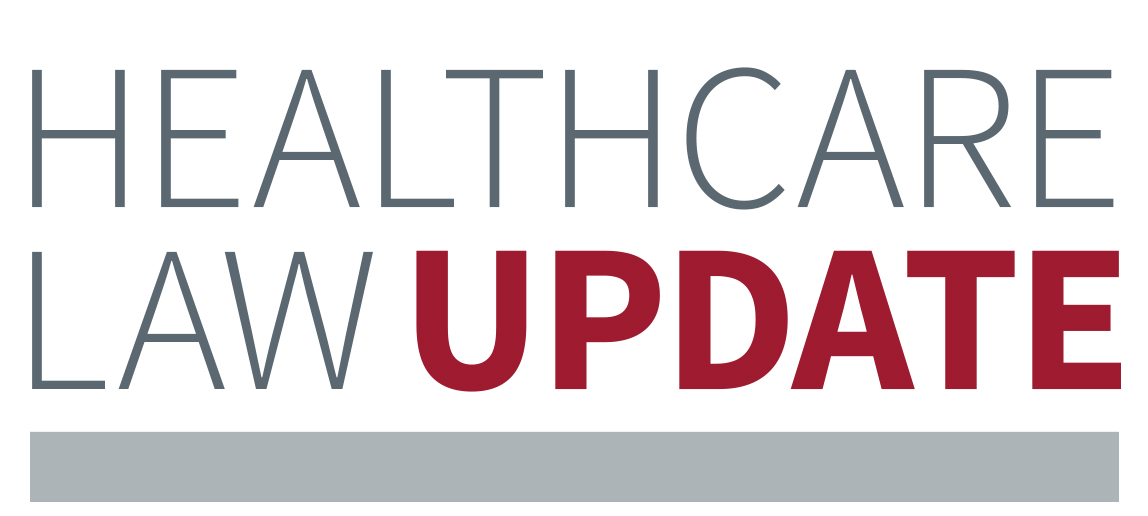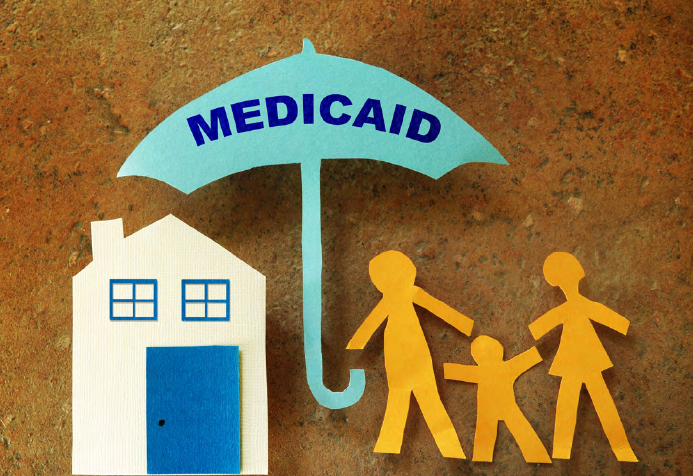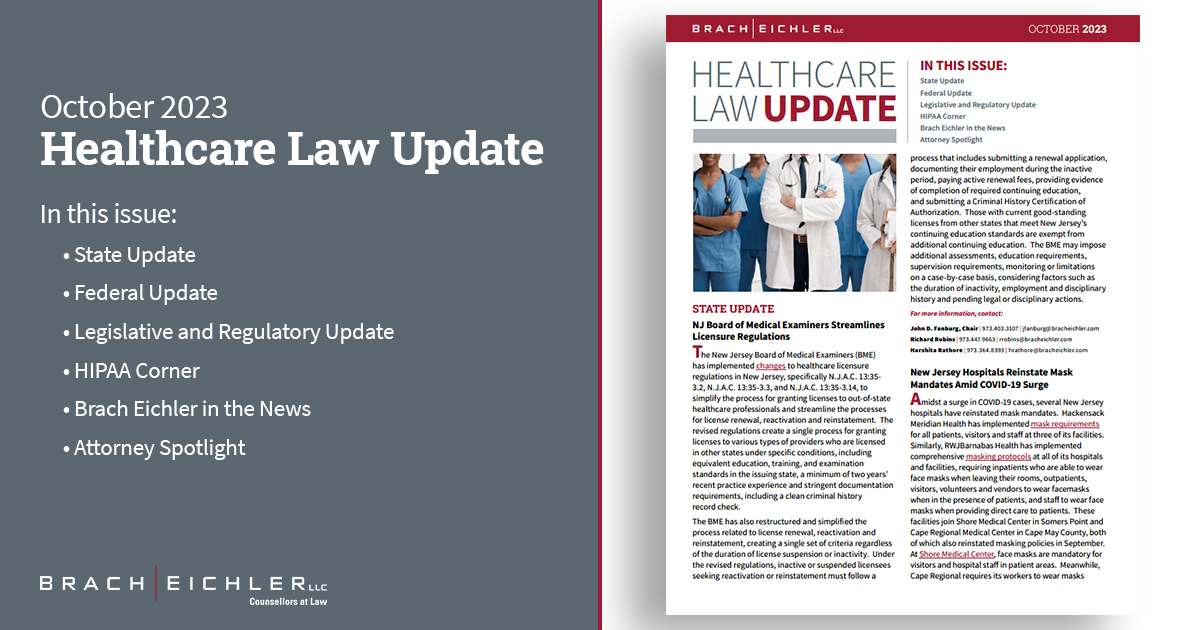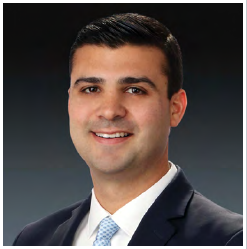


The New Jersey Board of Medical Examiners (BME) has implemented changes to healthcare licensure regulations in New Jersey, specifically N.J.A.C. 13:35-3.2, N.J.A.C. 13:35-3.3, and N.J.A.C. 13:35-3.14, to simplify the process for granting licenses to out-of-state healthcare professionals and streamline the processes for license renewal, reactivation and reinstatement. The revised regulations create a single process for granting licenses to various types of providers who are licensed in other states under specific conditions, including equivalent education, training, and examination standards in the issuing state, a minimum of two years’ recent practice experience and stringent documentation requirements, including a clean criminal history record check.
The BME has also restructured and simplified the process related to license renewal, reactivation and reinstatement, creating a single set of criteria regardless of the duration of license suspension or inactivity. Under the revised regulations, inactive or suspended licensees seeking reactivation or reinstatement must follow a
process that includes submitting a renewal application, documenting their employment during the inactive period, paying active renewal fees, providing evidence of completion of required continuing education, and submitting a Criminal History Certification of Authorization. Those with current good-standing licenses from other states that meet New Jersey’s continuing education standards are exempt from additional continuing education. The BME may impose additional assessments, education requirements, supervision requirements, monitoring or limitations on a case-by-case basis, considering factors such as the duration of inactivity, employment and disciplinary history and pending legal or disciplinary actions.
For more information, contact:
John D. Fanburg, Chair | 973.403.3107 | jfanburg@bracheichler.com
Richard Robins | 973.447.9663 | rrobins@bracheichler.com
Harshita Rathore | 973.364.8393 | hrathore@bracheichler.com
Amidst a surge in COVID-19 cases, several New Jersey hospitals have reinstated mask mandates. Hackensack Meridian Health has implemented mask requirements for all patients, visitors and staff at three of its facilities. Similarly, RWJBarnabas Health has implemented comprehensive masking protocols at all of its hospitals and facilities, requiring inpatients who are able to wear face masks when leaving their rooms, outpatients, visitors, volunteers and vendors to wear facemasks when in the presence of patients, and staff to wear face masks when providing direct care to patients. These facilities join Shore Medical Center in Somers Point and Cape Regional Medical Center in Cape May County, both of which also reinstated masking policies in September. At Shore Medical Center, face masks are mandatory for visitors and hospital staff in patient areas. Meanwhile, Cape Regional requires its workers to wear masks
during direct patient care and patients to wear masks when receiving treatment. The health systems attribute the reinstitution of mask requirements to the increased prevalence of COVID-19 in the hospitals’ surrounding areas and communities, emphasizing that the safety of both their team members and patients remains their top priority. New Jersey has witnessed a steady rise in COVID-19 cases over the past several months, with the state reporting 15,513 cases in the month of September. The resurgence of mask mandates in hospitals underscores the ongoing threat posed by the virus, particularly to individuals with compromised immune systems, signaling the importance of continued precautions.
For more information, contact:
Isabelle Bibet-Kalinyak | 973.403.3131 | ibibetkalinyak@bracheichler.com
Caroline Patterson | 973.403.3141 | cpatterson@bracheichler.com
Harshita Rathore | 973.364.8393 | hrathore@bracheichler.com

On September 18, 2023, the U.S. Attorney’s Office, District of New Jersey, announced two pharmacy executives and a pharmacist were arraigned on charges of defrauding Medicare and TriCare of $33 million dollars. Each of the three defendants was charged with conspiracy to commit health care fraud and wire fraud. Additionally, the CEO/owner of Apogee Bio-Pharm LLC in Edison, New Jersey (the Pharmacy) and the director of operations of the Pharmacy were charged with wire fraud, conspiracy to violate the federal anti-kickback statute, and payment of illegal kickbacks.
Pursuant to the indictment, the defendants allegedly worked with marketing companies that pressured Medicare and TriCare beneficiaries to try expensive medications that were medically unnecessary. The
marketing companies then sent pre-marked prescription pads for particular drugs that would produce high reimbursement to telemedicine companies. The telemedicine companies then paid doctors to approve prescriptions. The marketing companies paid the telemedicine companies kickbacks for every beneficiary referred for a prescription. The marketing companies then directed the prescriptions to the Pharmacy and the Pharmacy filled the prescriptions and sought reimbursement from federal health care benefit programs. The Pharmacy paid a portion of the reimbursement to the marketing companies as a kickback.
The defendants face the following penalties if convicted: (i) the health care fraud and wire fraud conspiracy charges carry a maximum potential penalty of 20 years in prison; (ii) the health care fraud charges carry a maximum potential penalty of 10 years in prison; (iii) the wire fraud charges carry a maximum potential penalty of 20 years in prison; (iv) the charge of conspiracy to violate the Anti-Kickback Statute carries a maximum potential penalty of five years in prison; (v) and the charges of payment of illegal kickbacks are punishable by 10 years in prison. Each count is punishable by a fine of $250,000, or twice the gain or loss from the offense, whichever is greatest.
For more information, contact:
Riza I. Dagli | 973.403.3103 | rdagli@bracheichler.com
Edward J. Yun | 973.364.5229 | eyun@bracheichler.com
Cynthia J. Liba | 973.403.3106 | cliba@bracheichler.com
On September 7, 2023, the Department of Justice (DOJ) released a report accusing two New Jersey state-run nursing homes for veterans of neglect and violating patients’ constitutional rights by failing to implement infection control protocols and provide adequate medical care during the COVID-19 pandemic. The state-run nursing homes, located in Menlo Park and Paramus, had some of the highest COVID-19 mortality rates in the country during the early stages of the pandemic, resulting in at least 146 patient fatalities, with investigators suspecting that the actual death-toll might be even higher. The report followed a comprehensive three-year investigation that identified a range of problems, including lapses in basic hygiene and
infection control, absentee supervisors, staff indifference toward residents, a culture of fear, inadequate safety measures for employees and a failure to properly administer medication. According to the report, many of the identified deficiencies continue today.
The DOJ has instructed the New Jersey Department of Military and Veterans Affairs, the agency that is responsible for administering these facilities, to promptly rectify the “deficient basic medical care” that these facilities provide to their patients. The DOJ has mandated that the facilities institute immediate improvements in areas such as medical care, infection control, medication administration and resident safety, and has given the State a 49-day window to rectify the deficiencies outlined in the report, failing which the U.S. Attorney General may initiate legal action to enforce necessary corrections for the identified deficiencies. The State previously paid $53 million to settle a lawsuit by families of residents in veteran nursing homes whose deaths resulted from the facilities’ gross negligence in dealing with the pandemic.
For more information, contact:
Joseph M. Gorrell | 973.403.3112 | jgorrell@bracheichler.com
Jonathan J. Walzman | 973.403.3120 | jwalzman@bracheichler.com
Harshita Rathore | 973.364.8393 | hrathore@bracheichler.com
In September 2023, a financially troubled Princeton nursing home, Princeton Care Center (PCC), abruptly closed on the eve of Labor Day, providing just twelve hours’ notice to its 72 residents and their families that they needed to be relocated. According to applicable regulations, nursing homes are required to submit a closure plan to the New Jersey Department of Health (DOH) and provide each resident with notice at least 60 days before closing so that residents and their families can make the necessary arrangements to relocate the patient to another appropriate facility. The unprecedented and abrupt closure was reportedly due to financial troubles as PCC was unable to pay its staff and behind on rent and payments to vendors.
According to reports, the DOH was aware that PCC was having financial difficulties months before it closed. In August of 2023, the DOH restricted admissions and put PCC on a corrective action plan because the DOH determined that PCC did not meet legally mandated minimum staffing requirements. In addition, PCC’s
landlord previously notified the DOH that it was suing PCC for back rent, which PCC had not paid since February 2023. To further complicate the situation, PCC was in the midst of negotiating a sale of the facility to another long-term care system in New Jersey. On August 31, 2023, the prospective buyer terminated the deal, which left PCC scrambling for cash to pay its workers. PCC decided to close its doors the following day.
For more information, contact:
Lani M. Dornfeld, CHPC | 973.403.3136 | ldornfeld@bracheichler.com
Jonathan J. Walzman | 973.403.3120 | jwalzman@bracheichler.com
Paul DeMartino | 973.364.5228 | pdemartino@bracheichler.com

On October 10, 2023, the Department of Health and Human Services Office of Inspector General (OIG) issued Advisory Opinion No. 23-07, concluding that a medical practice may pay bonuses to physician employees that are tied to profits from facility fees attributable to procedures performed by the employed physicians at an ambulatory surgical center (ASC) owned by the medical practice. The requestor of the Advisory Opinion is the operator of a multi-specialty medical practice with 11 physician employees that owns and operates two ASCs. The requestor proposed a bonus system whereby physician employees of the medical practice would receive a bonus equal to 30% of the medical practice’s net profits from facility fees collected by the medical practice attributable to surgical procedures performed by the employed physicians at one of the medical practice’s ASCs. The medical practice certified that the physician
employees were bona fide employees of the medical practice within the definition of “employee” under Federal law.
The OIG determined that while payment structures connecting compensation to profits from patient referrals may be problematic under the Federal Anti-Kickback Statute (AKS), since the physician employees are bona fide employees of the medical practice, the bonus compensation in this case is protected by the statutory exception and regulatory safe harbor for employees under the AKS and therefore would not constitute prohibited remuneration under the AKS, notwithstanding the potential risks of fraud and abuse these types of compensation arrangements may generally present. The OIG noted that similar arrangements involving bonus payments to independent contractors or other non-employees, or under a different corporate structure, might raise fraud and abuse concerns. The OIG also noted that the medical practice certified that the proposed arrangement did not implicate the Federal physician self-referral law, known as the Stark Law, and therefore the OIG was not offering any opinion regarding whether the proposed arrangement violates the Stark Law.
For more information, contact:
John D. Fanburg, Chair | 973.403.3107 | jfanburg@bracheichler.com
Isabelle Bibet-Kalinyak | 973.403.3131 | ibibetkalinyak@bracheichler.com
Harshita Rathore | 973.364.8393 | hrathore@bracheichler.com
On September 21, 2023, the Federal Trade Commission (FTC) sued U.S. Anesthesia Partners, Inc. (USAP) and its private equity owner, Welsh, Carson, Anderson & Stowe (Welsh Carson), alleging the two engaged in an anticompetitive scheme to monopolize the Texas anesthesiology market.
The complaint details that over the course of a decade, USAP and Welsh Carson engaged in a three part strategy to eliminate competition and generate profits. First, USAP and Welsh Carson executed a roll-up scheme where they would consolidate small, competing anesthesiology practices in Texas, resulting in USAP becoming the dominant anesthesia provider in the market. Second, USAP and Welsh Carson increased Texas anesthesia prices through price setting agreements with the remaining independent anesthesia
practices. Third, USAP eliminated a significant competitor by entering into an agreement where that competitor would refrain from providing services in USAP’s territory. The FTC estimates that this strategy has cost Texans “tens of millions of dollars” more each year for anesthesia services than before USAP was created in 2012. The FTC alleges that USAP and Welsh Carson’s conduct amounts to: unlawful monopolization, unlawful acquisitions, a conspiracy to monopolize, unfair methods of competition, and unlawful restraints of trade in violation of the FTC Act (15 U.S.C. § 53(b)) and the Clayton Act (15 U.S.C. § 18).
For more information, contact:
Keith Roberts | 973.364.5201 | kroberts@bracheichler.com
Shannon Carroll | 973.403.3126 | scarroll@bracheichler.com
Emily J. Harris | 973.364.5205 | eharris@bracheichler.com

The U.S. Department of Health and Human Services has revealed that it has assisted approximately 500,000 children and families in regaining their Medicaid and Children’s Health Insurance (CHIP) coverage. This assistance was prompted by an August 30, 2023 call to action from the Centers for Medicare and Medicaid Services (CMS) that highlighted an issue in state systems that wrongly disenrolled individuals, including children, from Medicaid or CHIP during their renewal process. Swift action by CMS has resulted in the reinstatement of coverage for these individuals and the prevention of further improper disenrollments.
To address the problem, CMS required all states, the District of Columbia, Puerto Rico, and the U.S.
Virgin Islands to investigate and report whether they experienced this system issue. As of September 21, 2023, thirty states have reported encountering this problem, including New York, which reported between 50,000-99,999 affected individuals, New Jersey, which reported less than 10,000 affected individuals, and Pennsylvania, which reported over 100,000 affected individuals. All states were instructed to halt procedural disenrollments for affected individuals unless they could ensure that eligible individuals would not be improperly disenrolled. CMS stressed the importance of states addressing the system issues to help eligible individuals maintain their coverage through the renewal process. CMS continues to offer technical assistance to states as they work to resolve these system issues and streamline the renewal process.
For more information, contact:
Carol Grelecki | 973.403.3140 | cgrelecki@bracheichler.com
Edward J. Yun | 973.364.5229 | eyun@bracheichler.com
Sally Olson | 973.403.3102 | solson@bracheichler.com
On September 25, 2023, Governor Murphy signed into law revisions to the applications for cannabis establishment licenses. An applicant for a cannabis establishment license will now, in addition to the existing application requirements, be required to submit to the Cannabis Regulatory Commission (CRC) a copy of any service agreements entered into between the applicant and a third-party. Also, if an applicant for a Class 5 cannabis retailer license (Class 5 License) accepts an investment opportunity for significant financial or technical assistance, the arrangement between the applicant and the investor will be reviewed by the CRC. An investor may own up to 35% in up to seven entities owned by a certified minority, women, or a disabled-veteran that has been issued a Class 5 License. Additionally, any significant financial or technical assistance the applicant receives will need to be paid back with interest to the respective investor within certain defined time periods. The arrangement may not allow the investor to obtain a controlling interest in the holder of the Class 5 License in the event of a default under the arrangement.

On September 25, 2023, Governor Murphy signed into law the “Hospital At Home Act” which permits the Department of Health to establish a state program similar to the Federal Acute Hospital at Home Program. The state program will permit a hospital to provide acute care services at an individual’s private residence. For the acute care services to be eligible for reimbursement, the licensed healthcare provider must be credentialed by a carrier. The Hospital At Home Act will take effect in January 2024.
On September 18, 2023, the New Jersey Department of Human Services (DHS) proposed to amend and add additional rules to its existing regulations regarding Rehabilitative Services for Children. The proposals center around fingerprint based criminal history background checks for specified providers. Currently, criminal background checks are required for providers of behavioral assistance services and intensive in-community mental health rehabilitation, specifically for those who have direct contact with children. The proposed new rules expand the requirements related to background checks, including detailing who will be required to get a fingerprint background check, what department can provide the fingerprint background check, how to dispute the accuracy of the fingerprint background check, detailing how an individual may be disqualified as a result of the findings of a fingerprint background check, and that if an individual has a disqualifying fingerprint background check he or she is ineligible as an employee or contractor with the DHS. Persons wishing to comment on the proposed rules must do so no later than November 17, 2023.

On September 18, 2023, the New Jersey Department of Banking and Insurance (DOBI) announced its adoption of rules requiring carriers to provide comprehensive abortion coverage as a part of all health benefit plans regulated by DOBI. Individual and small employer health insurance markets have had this requirement in place since January 1, 2023. Fully insured large employer health insurance markets will now be required to provide the same coverage as their smaller counterparts.
For more information, contact:
Carol Grelecki | 973.403.3140 | cgrelecki@bracheichler.com
Edward Hilzenrath | 973.403.3114 | ehilzenrath@bracheichler.com
Erika R. Marshall | 973.364.5236 | emarshall@bracheichler.com
The U.S. Department of Health & Human Services and the Cybersecurity & Infrastructure Security Agency have partnered to provide information, videos, cybersecurity awareness posters and toolkits to assist organizations to improve their resilience against cyber attacks. Information is available on the Section 405(d) Program website. According to the agencies:
The 405(d) Program is focused on providing the healthcare & public health (HPH) sector with impactful resources, products, and tools to raise awareness and strengthen the sector’s cybersecurity posture against cyber threats. This action drives behavioral change and move towards consistency in mitigating the most relevant cybersecurity threats to the sector with resources like HICP (Health Industry Cybersecurity Practices: Managing Threats and Protecting Patients) and the Hospital Resiliency Landscape Analysis.
The 405(d) website offers a number of cybersecurity resources to the health and public health (HPH) sector, including information and publications to assist in combating the top 5 threats facing the HPH sector: social engineering, ransomware, loss or theft of equipment, insider, accidental, or intentional data loss, and attacks against network connected medical devices.
If you need assistance with your HIPAA compliance program, an OCR investigation, or a data breach incident, please contact:
Lani M. Dornfeld, CHPC | 973.403.3136 | ldornfeld@bracheichler.com

On October 18th, TAPintoWestEssex reported on Brach Eichler’s participation in the 2023 Northern New Jersey Heart Walk on Saturday, October 14, 2023 in Roseland.
On October 10th, Brach Eichler conducted an informative webinar that reviews the NJ Cancer Registry from both a regulatory and legal perspective. Representatives from the New Jersey Department of Health, Taylor Hessler, BS, BA, CTR, Supervisory Cancer Registry Information Specialist and Suzanne Schwartz, MS, CTR, Supervising Public Health Representative, along with Healthcare Law attorney Isabelle Bibet-Kalinyak, Esq., discussed the latest NJ State Cancer Registry reporting obligations, processes, and legal regulations required for your practice to remain compliant.
On October 2nd, Brach Eichler was recognized and ranked by NJBIZ as a “2023 Best Places to Work”honoree. This program recognizes 50 women who have made a significant impact on New Jersey business and the community at large. Congratulations!!
If you were unable to attend The New Jersey Healthcare Market Review (NJHMR) or missed any sessions and would like to revisit the insights shared please click here.
Get to know the faces and stories of the people behind the articles in each issue. This month, we invite you to meet Member Shannon Carroll and Associate Paul DeMartino.
SHANNON CARROLL
What advice can you share with a client who might need your services?
The best advice is to be proactive to ensure compliance. Getting proper guidance at the outset of a project will put you in the best position to move forward successfully. Practices need to be thinking comprehensively about documentation, billing, coding, corporate structure and referral practices. These are areas where good doctors, who are focused on patient care can make costly mistakes.
What are some best practices for healthcare clients?
It is important to think ahead. Healthcare providers should be investing in themselves. This involves continuing education and investing in infrastructure to take their practices to the next level. If providers are expanding into a new area or working with new technology, it is important that they get proper training and guidance to avoid a misstep. Practices should take some time (and get help when needed) to be thoughtful about how they are moving forward.
What advice can you share with a client who might need your services?
When discussing a potential problem with counsel it is crucial to be organized and provide all relevant documentation and communications that relate to the issue at hand. Often times amongst health care practitioners, gathering relevant information tends to take a back seat but usually makes a difference in finding a resolution.
What are some best practices for healthcare clients?
From an individual standpoint it is important to understand your rights as an owner, member, shareholder, partner etc. in your medical practice. Depending on the clinician’s practice structure, he or she should have a basic understanding of the applicable agreements that govern the practice and the rights afforded to members. It is important to understand that in addition to the applicable agreements, the common law provides members of limited liability companies, partnerships, corporations, etc. basic rights which includes access to the company’s books and records, and financial information. It is imperative to have a handle on the business of healthcare in addition to clinical and regulatory responsibilities.

Attorney Advertising: This publication is designed to provide Brach Eichler LLC clients and
contacts with information they can use to more effectively manage their businesses. The contents
of this publication are for informational purposes only. Neither this publication nor the lawyers who
authored it are rendering legal or other professional advice or opinions on specific facts or matters.
Brach Eichler LLC assumes no liability in connection with the use of this publication.

Shannon Carroll | 973.403.3126 | scarroll@bracheichler.com
Riza I. Dagli | 973.403.3103 | rdagli@bracheichler.com
Lani M. Dornfeld | 973.403.3136 | ldornfeld@bracheichler.com
John D. Fanburg, Chair | 973.403.3107 | jfanburg@bracheichler.com
Joseph M. Gorrell | 973.403.3112 | jgorrell@bracheichler.com
Carol Grelecki | 973.403.3140 | cgrelecki@bracheichler.com
Caroline J. Patterson | 973.403.3141 | cpatterson@bracheichler.com
Keith J. Roberts | 973.364.5201 | kroberts@bracheichler.com
Richard B. Robins | 973.447.9663 | rrobins@bracheichler.com
Jonathan J. Walzman | 973.403.3120 | jwalzman@bracheichler.com
Edward J. Yun | 973.364.5229 | eyun@bracheichler.com
Paul J. DeMartino, Jr. | 973.364.5228 | pdemartino@bracheichler.com
Emily J. Harris | 973.364.5205 | eharris@bracheichler.com
Cynthia J. Liba | 973.403.3106 | cliba@bracheichler.com
Sally Olson | 973.403.3102 | solson@bracheichler.com
Harshita Rathore | 973.364.8393 | hrathore@bracheichler.com
Roseland, NJ | New York, NY | West Palm Beach, FL | www.bracheichler.com | 973.228.5700





